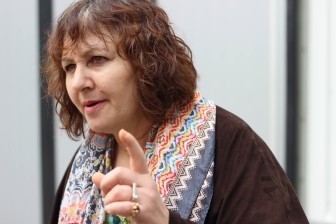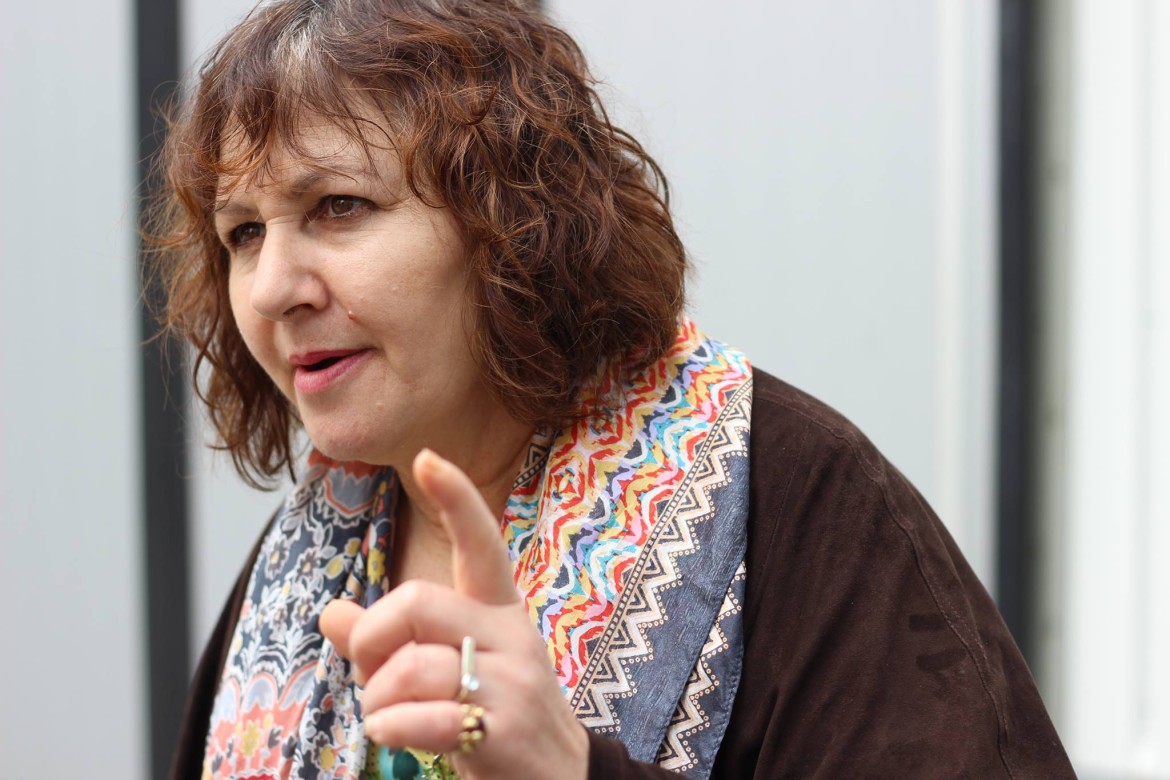Leslee Udwin, an Israeli-born British filmmaker, was raped when she was 18 years old.
Appearing recently at the Global Investigative Journalism Conference in Lillehammer, Norway, the 56-year-old director and actor recalled how making the 2015 documentary “India’s Daughter” – the story of the 2012 gang rape of a 23-year-old women in Delhi, India – stirred emotions she thought she had processed long ago.
“It’s a global problem, and a global film. India is just the case that illustrates it,” Udwin said, appearing at a screening of her film at the Global Investigative Journalism Conference in Lillehammer, Norway, last weekend.
Violence against women, rape in particular, she says, needs to be looked at.

Photo: Kristine Marie Gutterød
The Indian government, however, banned the BBC from showing the film on March 8, 2015, when it was schedule to be aired worldwide on International Women’s Day – and later forced YouTube to block it online.
The December 16, 2012 gang rape of Jyoti Singh, on a bus, heading home after seeing “Life of Pi,” drew international outrage and a month-long series of youth protests in India.
“I had never seen a so-called civilized country gather for their women in that way before,” she says. “This movie is my way of thanking India and setting fire to the discussion.”
For Udwin, making the film and seeing it banned has made her as much an activist as a filmmaker. The film, she says, illustrates both what she thinks is the problem and the solutions to women’s repression.
To more fully understand the problem, Udwin interviewed the five men convicted of raping Joyti Singh. Udwin’s critics accuse her of giving these rapists a voice. She says the interviews provide remarkable insights into what compels these men to commit violence against women, which needs to be revealed.
“They have to be interviewed so we can understand them,” she said. “If we keep hiding these views, we are polluting the debate.”
In preparation for interviewing the four convicts, she met and interviewed four other convicted rapists.
“In one of the practice interviews I collapsed. I was shaking, my heart was pounding into my chest, I was so overwhelmed,” Udwin recalled.
When the time came to actually meet with the rapists, Udwin says she girded herself anticipating coming face to face with monsters and psychopaths.
“They were humans, a couple of them were even sensitive,” she said.
In the end, she managed to do all the interviews, and surprisingly never felt angry.
“I only felt an overwhelming pity. These are our men and we need to understand how they think and why.”
Despite her current convictions, she concedes, there was a moment while preparing for the interviews that her courage flagged and she was ready to give up; she called her husband to plan a flight home.
Her daughter answered the phone and turned her around, declaring: “Don’t come home! You are doing this for my generation of girls.”

